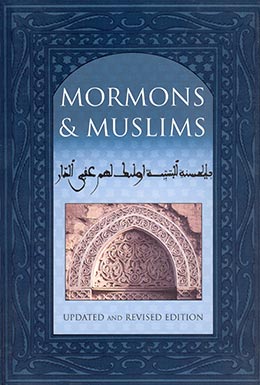In Search of Understanding
David C. Montgomery
David C. Montgomery, “In Search of Understanding,” in Mormons and Muslims: Spiritual Foundations and Modern Manifestations, ed. Spencer J. Palmer (Provo, UT: Religious Studies Center, Brigham Young University 2002), 85–86.
At the time of the symposium, David C. Montgomery was professor of history at Brigham Young University, founded and coordinated the Near Eastern Studies Program from 1978 to 1984, and taught survey courses on Near Eastern history covering the ancient, medieval, and modern periods. His main research and writing was centered on Soviet Central Asia, in particular on the twentieth-century cultural history of the Uzbeks, a Turkic-speaking people. Professor Montgomery lived in Turkey in 1966–67 on a Fulbright grant and has a year’s experience in Soviet Uzbekistan on three separate grants (1969, 1977–1978, 1982) from the International Research and Exchange Board. He authored a book and several articles and conference papers about the peoples of Central Asia.
I have had the opportunity of spending two years in the Near East—one year in Turkey and another in Soviet Turkestan, both areas of large Muslim populations. Though the political orientations and experiences in both instances were quite different, I was very positively impressed with the cultural strength and individual goodness of the Muslim people with whom I became acquainted. In Turkey, after the end of my year there, my landlord asked me if I could not stay longer because he would like me to become a Muslim. I was extremely flattered.
The second experience was in Soviet Central Asia, where despite a half-century attempt by the Soviet government to discourage religious practice, Islam persists as the majority population. Students from Egypt asked me to come with them on Friday, the jumah day (day of common prayer), to the large mosque in Tashkent to observe prayers with them. I had not been in a house of worship for almost five months before this experience. As I observed the prayer rituals and listened to the sermon, I felt very moved by the sincerity of this religious expression and, even though I was not of their faith, I sensed a common good spirit which we all shared. I hope that one of the results of this conference will be an expression of this spirit.
